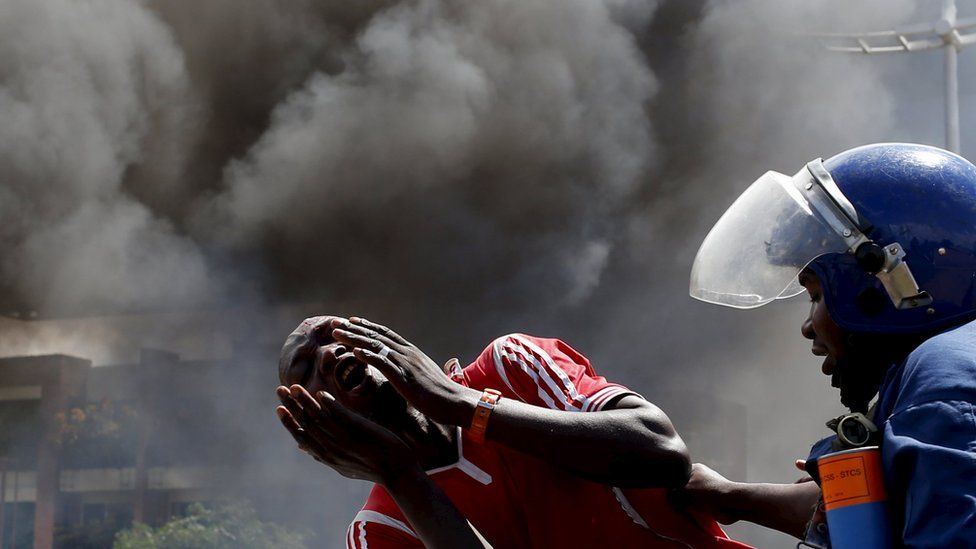UN Security Council agrees to send police to Burundi
- Published

The UN Security Council has authorised the deployment of a UN police force to Burundi to try to quell violence and human rights abuses in the country.
The council backed a French-drafted resolution to send up to 228 police for an initial period of a year.
Burundi earlier said it would accept no more than 50 police officers.
More than 400 people have been killed in unrest since President Pierre Nkurunziza said he would run for a third term in office last April.
More than 200,000 people have fled their homes.
Negotiations continue
"Given an increase in violence and tension the Security Council must have eyes and ears on the ground to predict and ensure that the worst does not occur in Burundi," said French UN Ambassador Francois Delattre.
"This is a strong act of preventative diplomacy," he added.
The government of Burundi earlier warned it would agree to no more than 50 UN police officers.
Diplomats are now negotiating how to implement the UN Security Council's resolution.
Although both Burundi's opposition and government forces are ethnically mixed, some fear that the violence could descend into a repeat of the genocidal killings which the country has previously experienced.
President Nkurunziza is the former leader of a Hutu rebel group which battled a Tutsi-dominated army for many years until he came to power in 2005 as part of a peace deal.
Timeline: Chaos in Burundi
- April 2015: Protests erupt after President Pierre Nkurunziza announces he will seek a third term in office
- May 2015: Constitutional court backs Mr Nkurunziza's bid. Tens of thousands flee as demonstrations continue
- May 2015: Army officers launch a coup attempt, which fails
- July 2015: Elections are held, with Mr Nkurunziza re-elected. The polls are disputed, with opposition leader Agathon Rwasa describing them as "a joke"
- December 2015: 87 people killed on one day as soldiers respond to an attack on military sites in Bujumbura
- January 2016: Allegations emerge of mass graves and gang-rapes by Burundian security forces
- Published3 November 2015
- Published2 December 2015
- Published1 February 2016
- Published14 October 2015
- Published18 August 2015